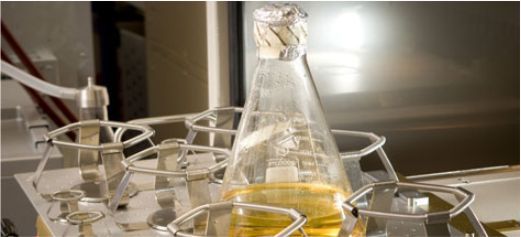
Scientists from the University and MedImmune are collaborating on a PhD studentship investigating the role that transient excursions from the folded functional state of a protein plays in aggregation.
Increasing numbers of therapeutic agents under development are biotherapeutics: 25-30% of new drug applications in recent years have been for biological entities. To develop a protein that appears effective in the laboratory into a marketable biotherapeutic, several challenges must be overcome. One such bottleneck in biotherapeutic development that commonly occurs is protein aggregation. Tools to predict and prevent protein aggregation are, consequently, keenly sought.
Scientists from the University of Leeds and MedImmune are collaborating on a PhD studentship which aims to investigate the role that transient excursions from the folded functional state of a protein plays in aggregation. These excursions, known as protein dynamics, will be explored by a number of techniques that include NMR, fluorescence and stopped-flow kinetic measurements.
The collaboration with MedImmune ensures the project remains highly relevant to industry, as lead researcher David Brockwell explains. "By collaborating with MedImmune we are gaining access to a range of proteins with different but known aggregation characteristics. This not only enriches the data available to the project, but because the proteins are therapeutic candidates it allows us to understand how our research can be applied to real-life problems in biopharmaceutical companies".
MedImmune also understands the benefits of collaboration. "In working with the University of Leeds on this project we gain access to expertise from many disciplines which is being focussed on the prediction and prevention of protein aggregation; one of the key obstacles facing the development of biotherapeutics today" says Andrew Buchanan.
The project is fully funded by MedImmune.
For further information:
Please contact the University of Leeds Press Office on +44 (0)113 343 4031 or email pressoffice@leeds.ac.uk